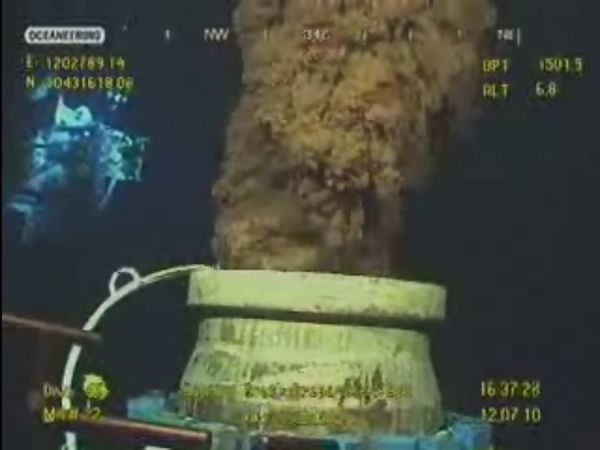
The undersea use of chemical dispersants during the 2010 Deepwater Horizon oil disaster likely did more harm than good, a new study says.
A University of Miami-led study indicates that the massive amounts of dispersants BP applied directly at the spewing wellhead – about a mile below the Gulf of Mexico’s surface – failed to curb the oil’s spread, and may have increased the disaster’s ecological damage.
The study is one of several in recent months that have questioned whether dispersant should be used at all. Other research cited in the UM study noted that dispersant appears to fight nature’s ability to clean-up after oil spills. A study by the University of Georgia indicates that dispersant kills or inhibits the growth of oil-eating microbes, including naturally-occurring bacteria that rapidly consume oil that dispersants only break apart.
Dispersant has also been linked to illnesses in humans and several types of marine life. The Gulf’s deep sea coral were found to suffer more from a dispersant-oil mix than oil alone.
“There is no upside in using ineffective measures that can only worsen environmental disasters,” said Claire Paris, a marine scientist and the UM study’s lead author.
BP declined to comment on the study. In the past, BP has said the use of dispersants was approved by federal environmental agencies and the Coast Guard.
University of Georgia marine scientist Samantha Joye said the study raises questions about whether dispersants should be used on future oil spills.
“These findings should change the way we think about spill response (and the) reprioritization of response measures,” said Joye, who assisted with the study.
The oil industry’s drilling in deeper water in the Gulf underscores the need for alternative measures for dealing with blowouts and spills, UM scientists said. The “capping stack” method BP used to plug the well nearly three months after the explosion might be a better first response strategy. The study’s authors also suggested more research into “bio-surfactants,” a less toxic and biodegradable option for breaking up spills.
